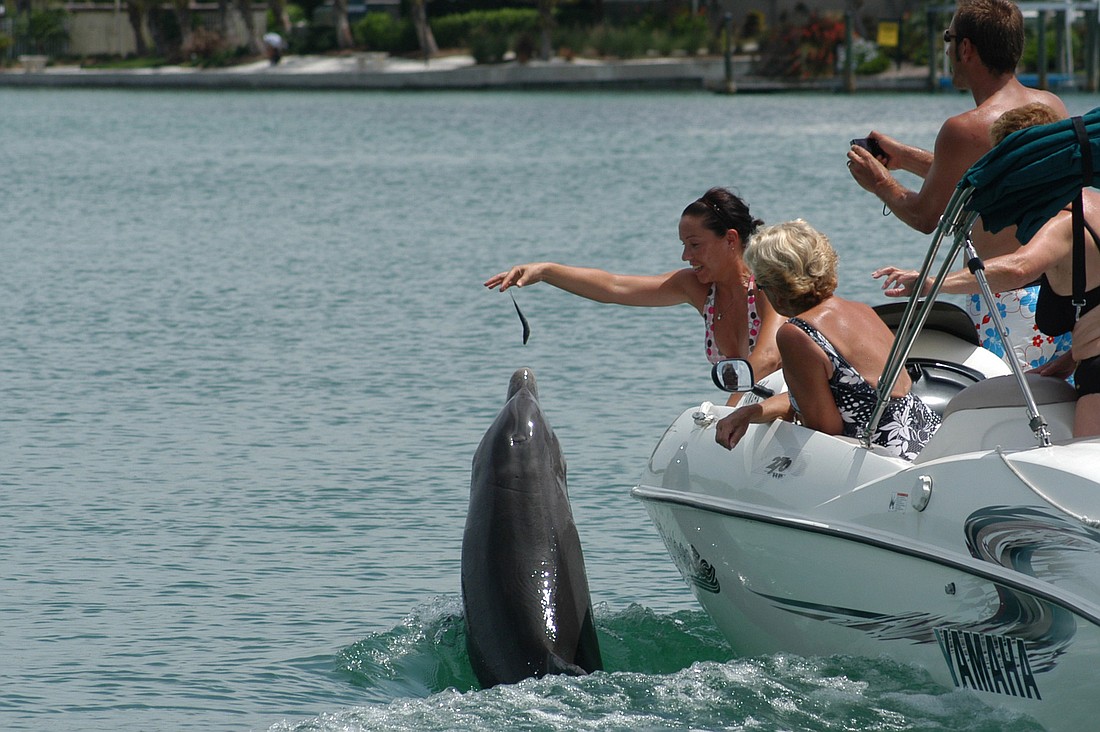- April 18, 2024
-
-
Loading

Loading

Mote Marine Laboratory announced Friday that Beggar the bottlenose dolphin was found dead near the Albee Road Bridge in Sarasota.
Beggar was one of the most studied dolphins in the world. He often approached humans and humans often approached and fed him. By feeding Beggar, people changed his behavior and put him at risk of boat strikes, while also changing the behavior of dolphins around him, according to a prepared statement.
A necropsy performed on Beggar by Gretchen Lovewell, manager of Mote's Stranding Investigation Program revealed no definitive cause of death, but revealed numerous indications of interactions with humans that caused his poor health, including various external wounds, some of which were caused by boats and multiple broken ribs and vertebrae.
He also showed signs of a poor diet. He didn't have much food in his stomachs but had three fishing hooks and small bits of line in his first stomach, two squid breaks (not a normal prey item for resident Sarasota Bay dolphins) and several ulcers of varying severity in his third stomach. Beggar was also dehydrated, possibly because he wasn't eating a normal human diet.
Dr. Katie McHugh, of the Sarasota Dolphin Research Program, spent 100 hours observing Beggar's behavior and the behaviors of boaters who interacted with him and documented 3,600 interactions between Beggar and humans — up to 70 per hour; 169 attempts to feed him 520 different food items, including shrimp, squid, beer, hot dogs and fruit; 121 attempts to touch him, resulting in nine bites to humans who did the petting.
Sarasota Dolphin Research Program Director Dr. Randy Wells said in a prepared statement that Beggar's death offers a stark reminder of why feeding wild dolphins is bad.
“By feeding Beggar, people reinforced the bad behavior that eventually played a role in his death,” Wells said. “Ultimately, it's human behavior that we need to change. We need to make sure that this pattern doesn't repeat itself with another dolphin.”
Contact Robin Hartill at [email protected].